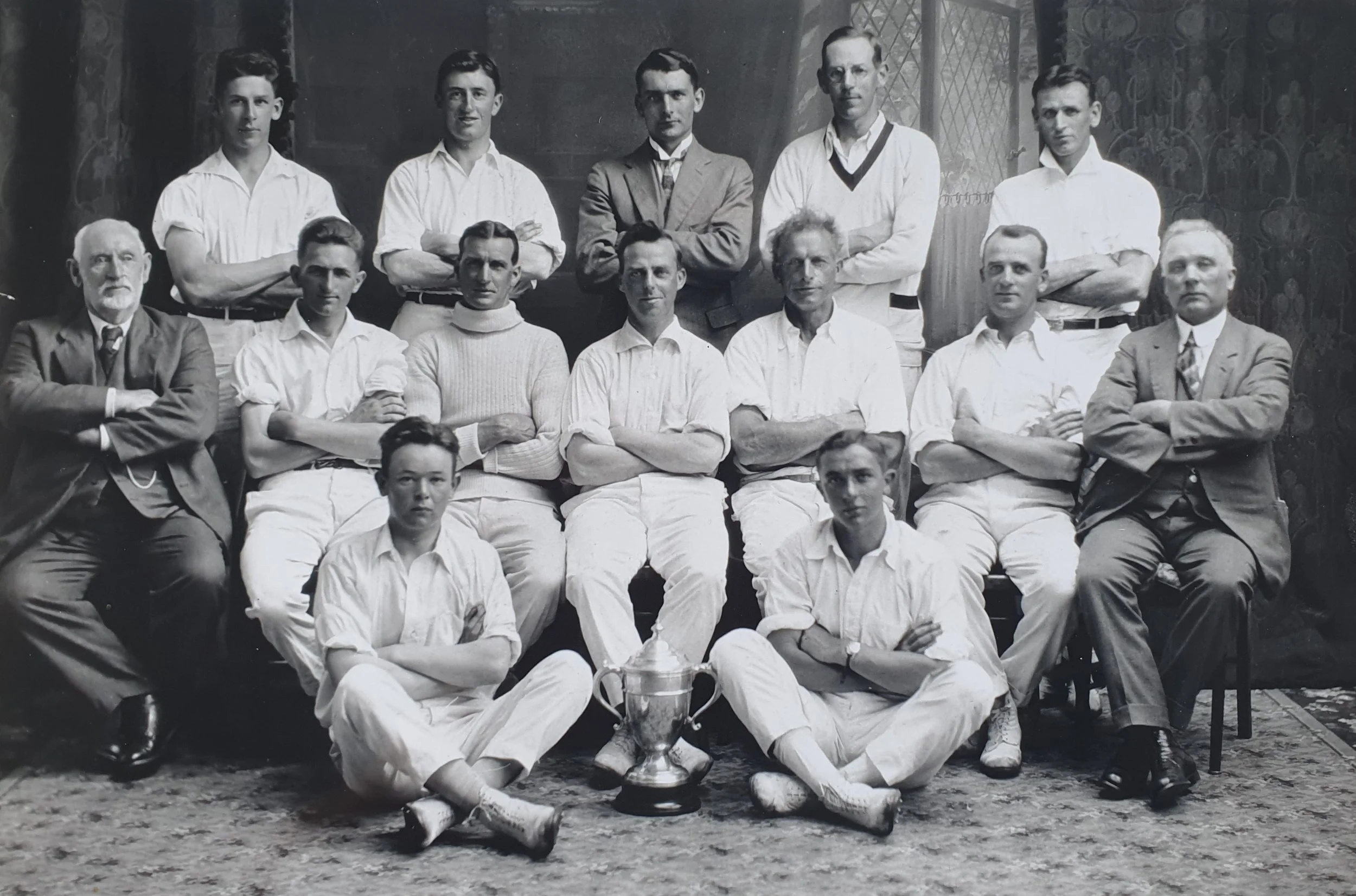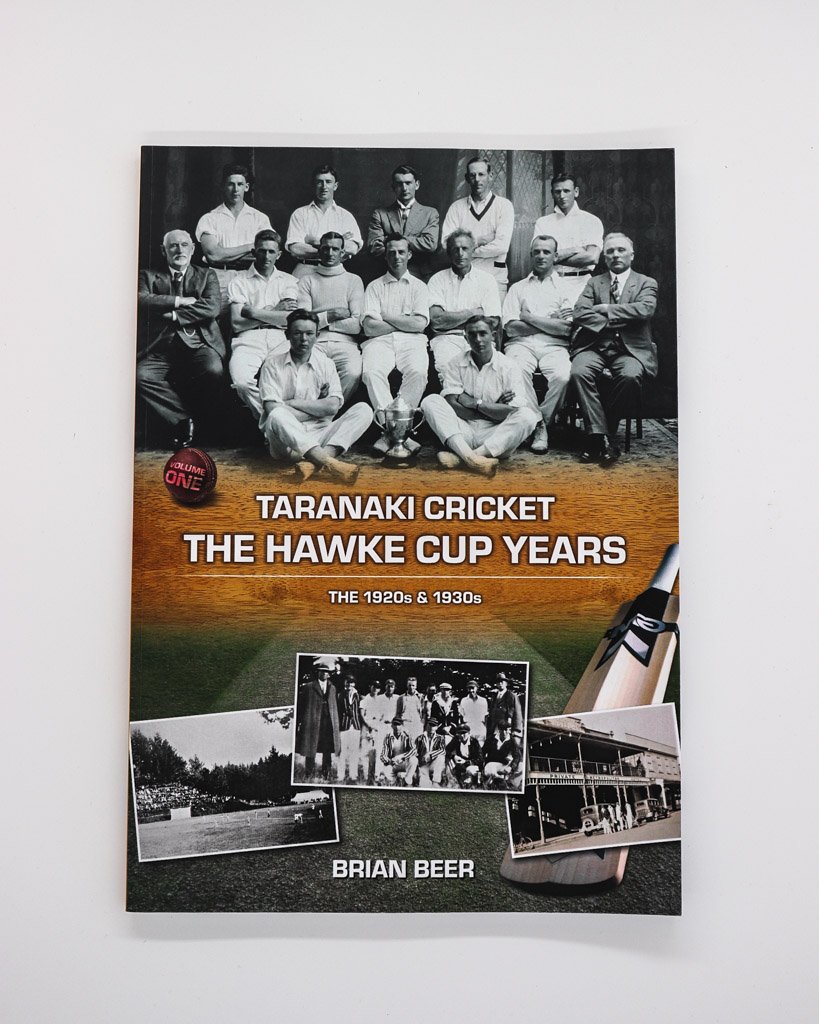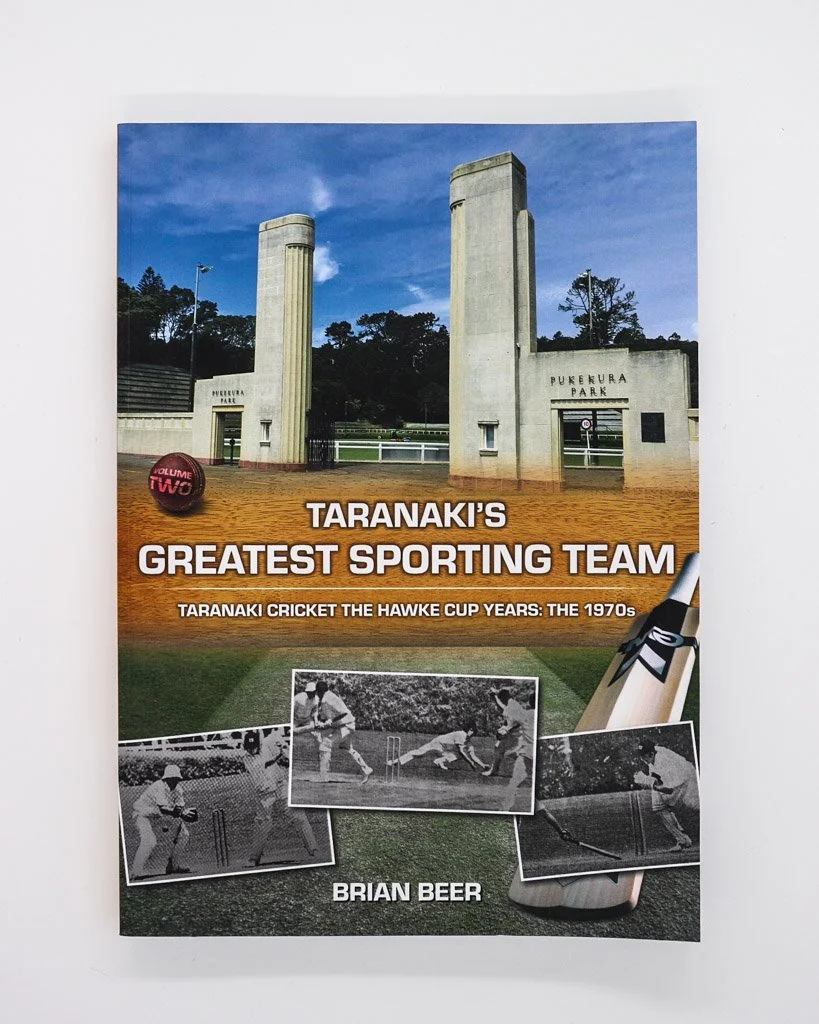TARANAKI STORIES
Books by Brian Beer
More Sad Blows Than Usually Fall
The Taylers of Eltham
This is the story of one family but it is also the story of how a small town in Taranaki emerged from the Victorian era and entered the modern age.
George Washington Tayler can rightly be called the ‘Father of Eltham’. He and his wife Alice raised six children in the town, which they helped to shape from the earliest days of European settlement.
The product of years of careful research, this book explores the everyday lives of one extraordinary family: soldiers and politicians, nurses and storekeepers, farmers and rugby players. As the world around them was turned upside down, they demonstrated true heroism in the face of the horrors of the First World War and the Spanish Flu, whilst devoting their lives to public service and creating opportunities for subsequent generations.
The story of the Taylers of Eltham is a compelling and moving account of one family’s triumphs and tragedies through seven turbulent decades. This is an affectionate chronicle of a vanished world, one that goes to the heart of the New Zealand colonial experience.
-
-
978-0-473-65812-0
Taranaki Cricket
The Hawke Cup Years
The 1920s & 1930s
First competed for in 1910, the Hawke Cup has always been the symbol of supremacy in minor association cricket in New Zealand.
The first time Taranaki won the cup was in 1926. It happened only after a major reorganisation of the game in the province, one that brought together the separate North and South Taranaki cricket associations.
The reorganisation of cricket had been less than smooth. The immediate build-up to the successful challenge match was also less than smooth. In fact, no one was quite sure which Taranaki players would turn up at Cook’s Gardens in Whanganui for the game.
This is the story of cricket in Taranaki after Lord Hawke’s ground-breaking tour to New Zealand in the summer of 1902-1903, the subsequent split in the province and the eventual re-unification, and the winning challenge. It ushered in a period of unprecedent success in Taranaki cricket.
Our story starts with a car crash in South Taranaki. It is perhaps a suitable analogy for the state of Taranaki cricket at the time…
-
-
978-0-473-62000-4
The Honours Board
A History of the New Plymouth Old Boys’ Cricket Club and Western Park
In 1919 organised sport in New Zealand was still trying to recover from the disruptions of the First World War. Most competitions had been in recess and facilities were scarce. In September of that year, a group of keen sportsmen met in a building on the corner of Devon and Egmont Streets in New Plymouth, to consider forming a new cricket club…
‘The Honours Board’, written by Brian Beer, is a unique account of the New Plymouth Old Boys’ Cricket Club from that first meeting, through to the unprecedented success of the premier team in the 2000s and the ‘treble’ of 2014. Along the way, the book tells the stories of many of the club’s players, including several New Zealand representatives, the prominent officials, the notable games, the triumphs and controversies, the tragedies of the war years. All the premier games in more recent times are covered. The club has won more premier grade titles, and produced more Taranaki and New Zealand cricketers, than any other in Taranaki.
Much information about the general history of club cricket in Taranaki is also included in this book.
‘The Honours Board’ is about more than just cricket though. It covers many other aspects of New Plymouth’s sporting history.
Western Park, Old Boys’ home ground, is the second oldest sports ground in New Plymouth. The story of the park’s development, beginning in 1902 and helped along by cheap prison labour, is told in full. The many sports played at the park, including athletics, boxing, croquet, cycling, football, lawn bowls, rugby union and rugby league, are all covered in this book. Much new information is contained in the chapter about the professional boxing fight between Taranaki’s own Tommy Donovan and the visiting American, Pete Sarron, on Western Park in 1930.
‘The Honours Board’ also incorporates various aspects of New Plymouth’s urban development and social activities, especially around the Western Park area. Included are separate chapters on New Plymouth’s trams and visiting circuses, along with the story of the development of many of New Plymouth’s sports venues and parks.
Very few books have been written about sports clubs in Taranaki, certainly nothing with this depth and breadth of information. This is the first book ever written about a cricket club in New Plymouth. Liberally illustrated with photographs, most of them unseen for decades, ‘The Honours Board’ is the complete history of the club and Western Park, with so much more about New Plymouth as well.
-
-
Taranaki Daily News via Stuff
-
978-0-473-31250-3
Taranaki’s Greatest Sporting Team
Taranaki Cricket The Hawke Cup Years: The 1970s
The story of the most successful Taranaki sporting team of them all…
The Hawke Cup has always been the symbol of supremacy in minor association cricket in New Zealand.
In February, 1970, the Taranaki cricket team won the right to challenge the holders, Southland. Taranaki hadn’t won the cup in thirty-six years.
But for a long time, it was uncertain if Taranaki would get to play the game. A trip to Invercargill, even to challenge for the Hawke Cup, was considered much too expensive by many people in Taranaki cricket.
Eventually enough money was raised to send a team south. Although few people gave them much chance when they left New Plymouth on Christmas Day, it was by then a quietly confident group, well-led and with a great team spirit.
Drawing on newspaper and official records, and interviews with many of the players, this is the story of that game, and the Hawke Cup defences that followed. It would become the most successful era in Taranaki’s cricket history, a time when the popularity of the team and the game soared in the province. When it was all over, more than 22,000 people had paid to watch Taranaki’s thirteen defences played at Pukekura Park and that’s not counting the hundreds of people who poured into the ground each day when the gates were thrown open for the last sessions of play.
This book contends that the Taranaki cricket team’s Hawke Cup tenure of the 1970s ranks as the stand-out achievement in Taranaki sporting history. The greatest era in the history of all team sports in the province.
Years later one of the players, Barry Roberts, who was there to see nearly everything, said of the times and this book: “Don’t worry about censoring any stories. Just let it go.”
Here is their story.
-
-
978-0-473-61900-8




